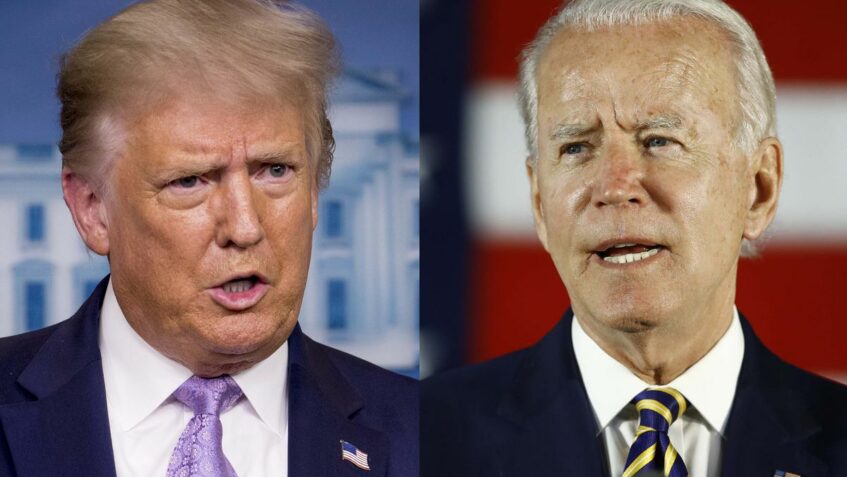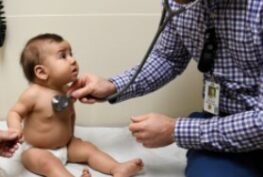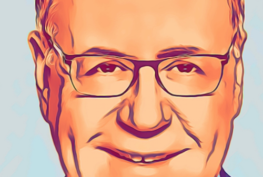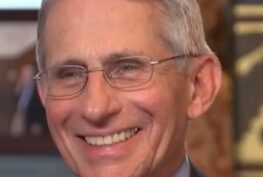Marc Siegel, M.D. is a professor of medicine and medical director of Doctor Radio at NYU Langone Medical Center. He is a Fox News Medical Analyst and author of “COVID: The Politics of Fear and the Power of Science.” Follow him on Twitter @drmarcsiegel.
Speak Georgia Inc. co-founder Janelle King, Turning Point USA founder Charlie Kirk and Fox News contributors Sara Carter weigh in on ‘The Next Revolution.’
Former Vice President Joe Biden tweeted this weekend that “President Trump still has no plan to address COVID-19.”
And the latest Fox News poll shows that voters trust Biden over Trump on coronavirus by an increasing amount and only two out of 10 think the virus is under control in the U.S.
But what is Biden’s plan? The answer is that it is part increased government control and expenditure, part amplifying biotechnical accomplishments that are already in place, and part yet to be defined.
DR. MARC SIEGEL: TO DEFEAT CORONAVIRUS, WE MUST DO THIS
The president’s plan is to be found in the details of what he’s done to try to manage the pandemic, beginning with restricting travel from China in late January, to forming a Lincolnesque team of rivals task force in March that has worked tirelessly even if they often haven’t agreed with each other or the president, to restricting travel from Europe in June, to assembling a public/private partnership enabled by the Defense Production Act.
Under Health and Human Services Secretary Alex Azar, millions of the components of PPE were generated, as were thousands of ventilators. And COVID therapeutics have emerged, from the anti-viral Remdesivir and monoclonal antibodies for early in the clinical course to dexamethasone and anti-coagulants for hospitalized patients.
The promising vaccines under Operation Warp Speed have progressed at an unprecedented rate, and it now looks look the Pfizer or Moderna messenger RNA vaccines could be ready for use in high-risk groups as early as late fall or early winter.
Biden has a plan to combat COVID posted on his website. How does it differ from the president’s plan?
For one thing, he states that he will “make testing widely available and free.” But the Families First Coronavirus Response Act already ensures that COVID-19 testing is free to anyone in the U.S., including the uninsured.
And HHS Assistant Secretary for Health Adm. and Dr. Brett Giroir told me in an interview on SiriusXM last week that over 100 million rapid tests of the Abbott BinaxNOW antigen tests have been sent to the states, where high-risk areas, including nursing homes, are a priority.
He is also excited about the point of care Cue Health test, a cartridge-based molecular test that Giroir said is “99 percent accurate” and delivers results in 20 minutes. HHS and the Defense Department have invested $481 million in this test and Giroir envisions 100,000 tests a day being available by March mostly to confirm results of the Abbott antigen test.
Nevertheless, at this time, we still lack testing, and there is often a several-day delay, especially on the gold standard PCR tests, which undermines the crucial process of isolation and contact tracing to prevent spread. Free widespread rapid testing will be crucial to controlling the pandemic, no matter who is president.
There is a big difference between the two candidates in terms of how to best control both the virus and its cost.
Biden’s plan also promises “a decisive economic response that starts with emergency paid leave for all those affected by the outbreak.”
Currently, the Families First Coronavirus Response Act provides for two weeks of paid leave for those who are quarantined or sick from COVID-19. But the economic toll from the pandemic is enormous. An article in JAMA Network in October puts the overall loss in terms of work output and health reduction as $16 trillion.
There is a big difference between the two candidates in terms of how to best control both the virus and its cost. Whereas the president is focused on reopening and saving businesses, the former vice president is focused on viral control, masking and lockdowns if necessary.
Masks are clearly useful in helping stop the spread of the virus, especially if worn properly and used in conjunction with the all-important social distancing. In fact, several studies have shown that mandates have value, most recently in Tennessee, where an analysis from Vanderbilt revealed a link between mask mandates and lower hospitalizations. Biden’s commitment to mask mandates is supported by public health experts.
But Biden’s commitment to more lockdowns if needed has much less broad support. Dr. Anthony Fauci has expressed to me and others serious reservations about a national lockdown. Dr. Scott Atlas, health policy expert and an adviser to President Trump, said to me, “anyone even contemplating more restrictions on schools, families and businesses has not learned a thing about the pandemic. Those shutdowns are enormously harmful, especially to working-class families, and then once you reopen, the virus returns. That policy is contrary to the data; it is based on fear.”
When it comes to COVID-19, whoever wins Tuesday’s election for president will step into a situation where case numbers are skyrocketing and hospitalizations are on the way up. At the same time, therapeutics are ramping up, vaccines are coming soon, and rapid testing is becoming more widespread and readily available.
If your choice for president can provide a strategy for ensuring public health compliance while helping our economy to survive and thrive, then you’ve picked a winner.





